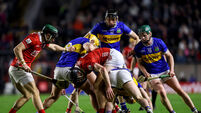Iraqi ex-pats vote at the polls
Iraqi voters, hoping to restore order and security to their troubled nation, filed into schools and other makeshift polling stations in neighbouring nations today to cast ballots in their nation’s first democratic election in half a century.
Expatriate Iraqis were voting in 14 countries around the world, but in the Middle East, and especially in autocratic Syria, the election represented a rare exercise in democracy.














